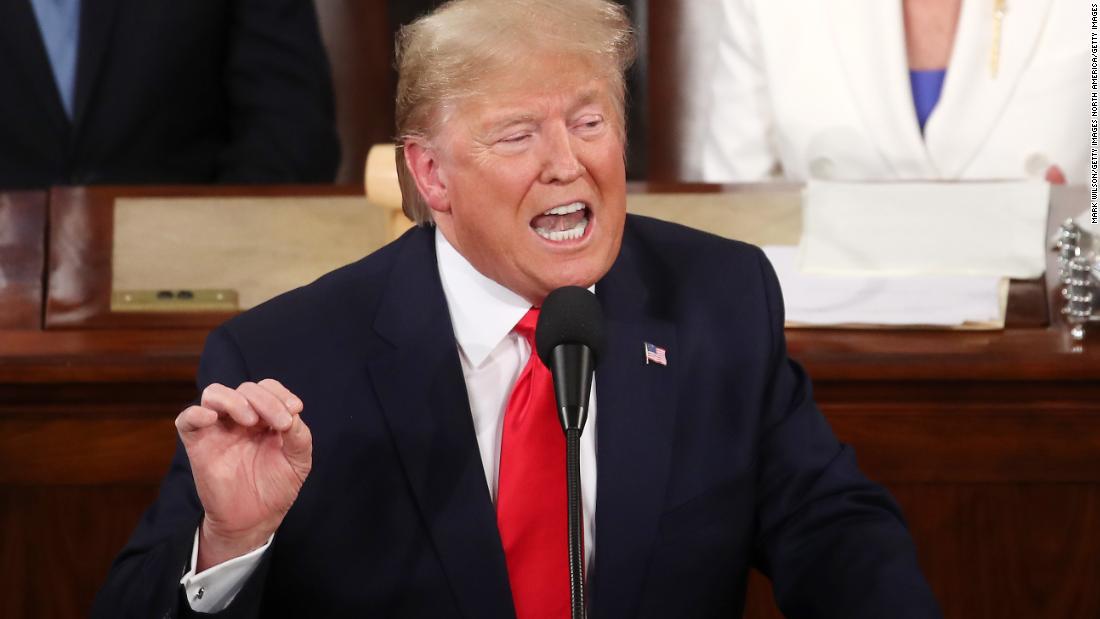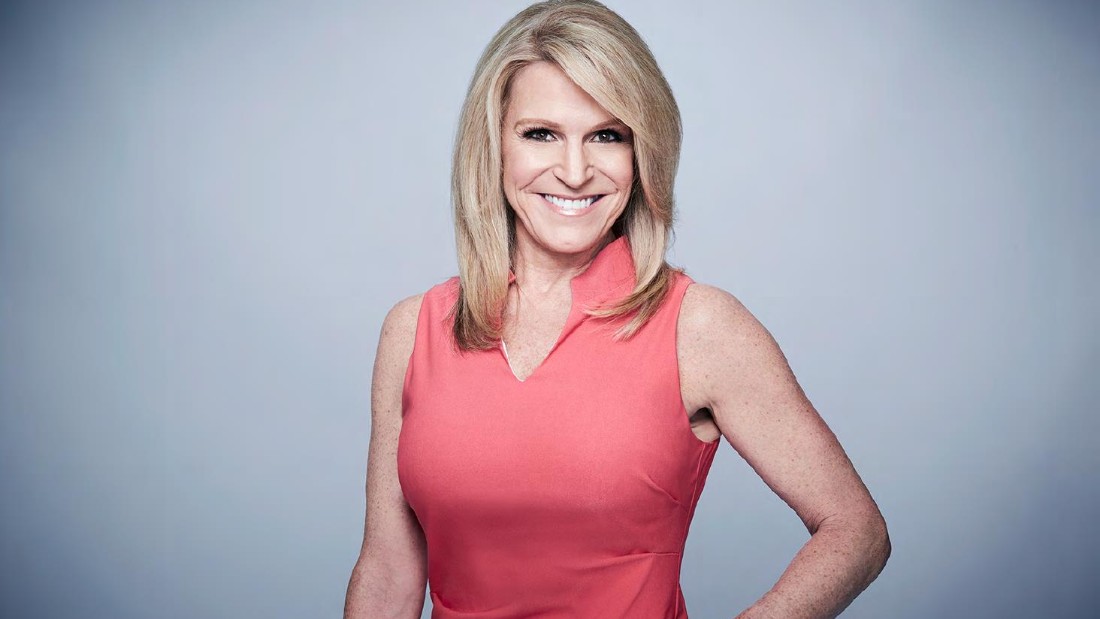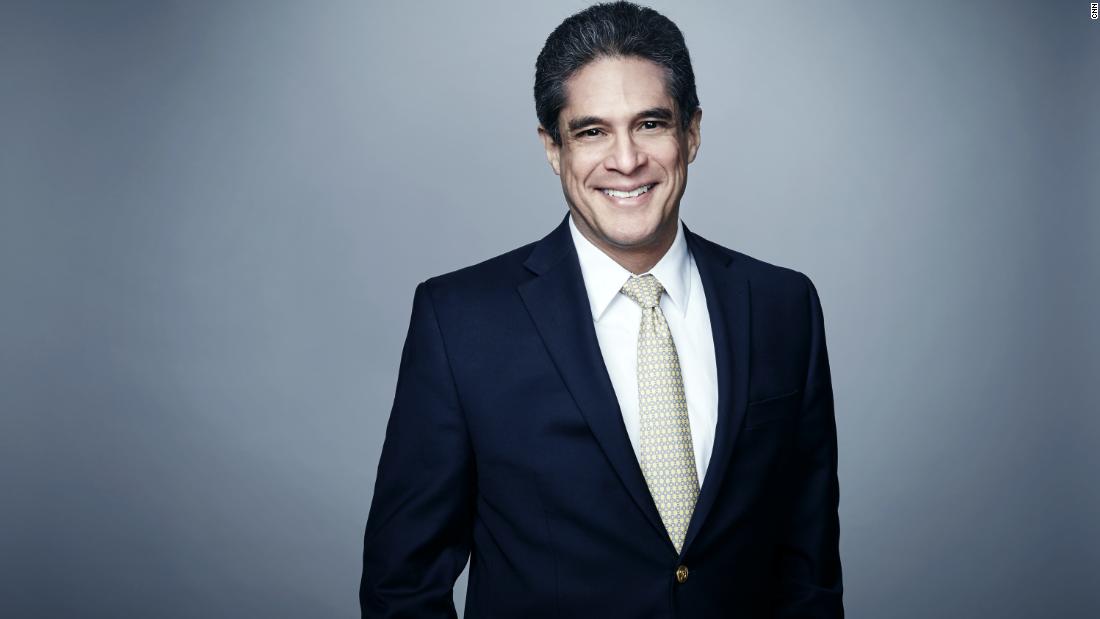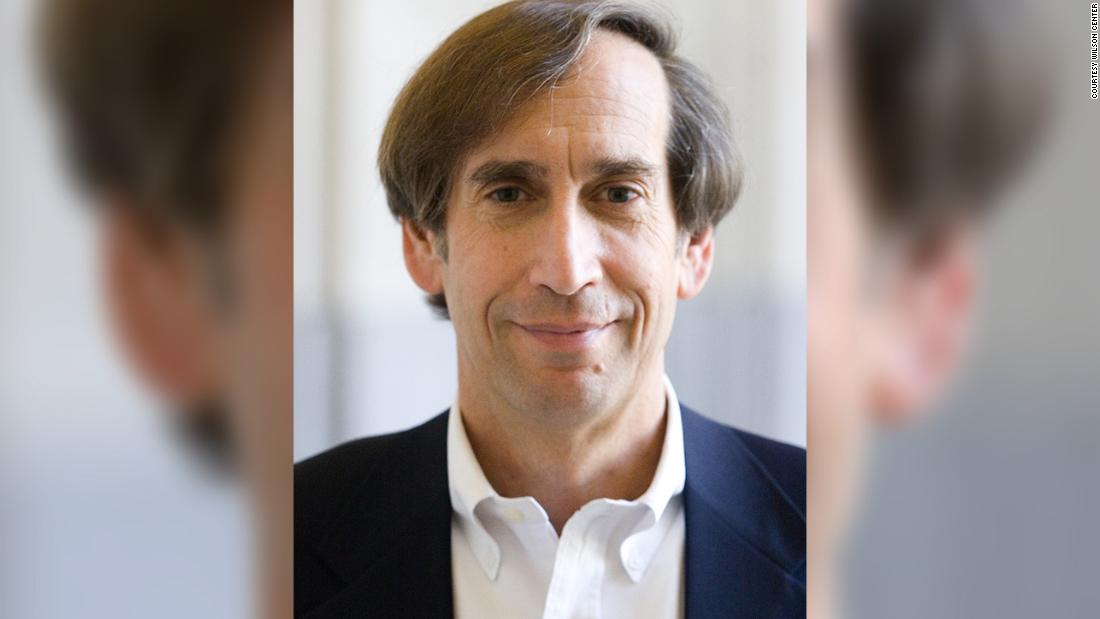What Trump’s reality show speech revealed
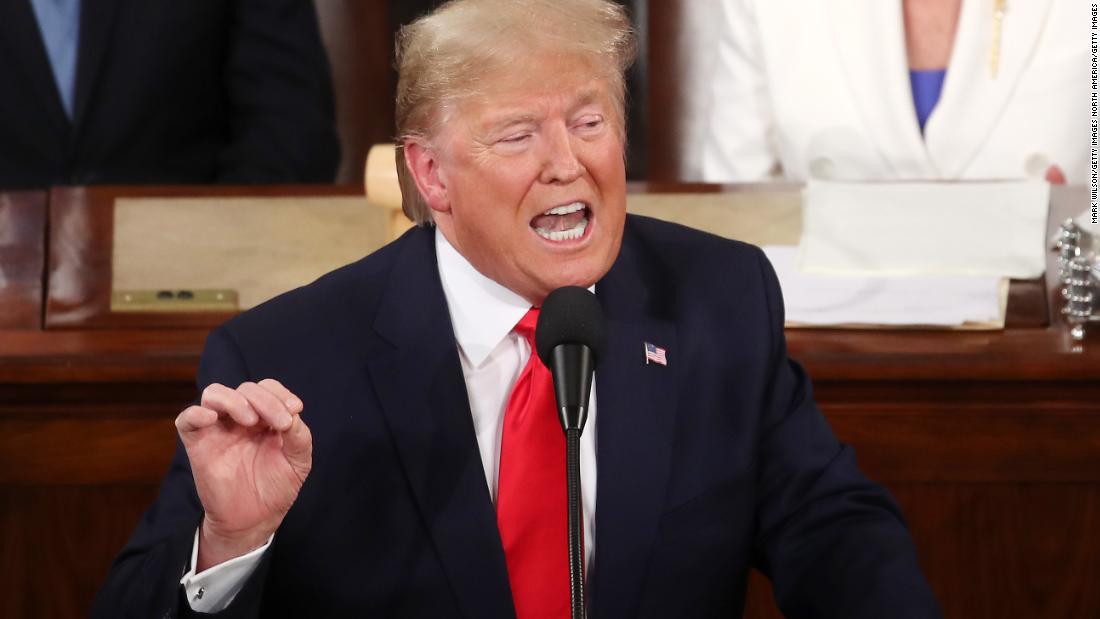
(CNN)CNN asked commentators for views on President Trump’s State of the Union address Tuesday night. The opinions expressed are solely those of the authors. View more opinion articles on CNN.
Trump’s State of the Union speech tonight was a winner. By that I mean, it should remind everyone, especially Democrats, that he could very well be on his way to winning another four years.
Let’s be clear, as fact-checker Daniel Dale was busy pointing out on Twitter, it was full of half-truths and total distortions. But the broad themes Trump hit on are likely to be very popular with wide swaths of American voters.
The economy is good, unemployment is down, and his administration passed key pieces of legislation like paid family leave for federal employees, funds for combating opioid addiction and criminal justice reform.
He boasted of fighting ISIS and putting not one but two prolific terrorist leaders in the ground.
And he directly addressed some of the Democrats’ more extreme positions: promising that “we will never let socialism destroy American healthcare,” and vowing to end late-term abortion, to uphold the Second Amendment and to end sanctuary city policies.
Democrats don’t want to believe it, but all of that probably sounds more reasonable and indeed mainstream than a number of the policies most of the Democrats for president are running on, like free health care for undocumented immigrants, abolishing private health insurance, banning guns and unrestricted abortion rights. If you took Trump out of the House tonight, that speech would probably even appeal to many Democratic and independent voters.
Trump, of course, is both his best pitchman as well as his own worst enemy. Democrats are betting that his lies, his insults and his impeachment will overshadow these winning messages. I wish they mattered as much as they think they do. But I’m willing to bet that if Democrats underestimate the potency of these promises in favor of unpopular, far-left policies, he’ll get four more years.
SE Cupp is a CNN political commentator and the host of “SE Cupp Unfiltered.”
Errol Louis: Behind the Reaganesque pose, the same old petty Trump
President Trump did his best imitation of Ronald Reagan at the State of the Union address, falling just short of declaring it “Morning in America,” the iconic imagery and message of a campaign ad that Reagan rode to re-election in 1984. Trump talked of Americans as pioneers and explorers; he lavished praise on members of the military, several of whom he recognized from the podium; he optimistically declared that the best is yet to come.
It was a masterful performance — but behind the sunny smile was the same old Trump: petty, angry, vindictive and deceptive. He refused to shake the hand of House Speaker Nancy Pelosi, a snub she returned in kind by ostentatiously ripping up her copy of the President’s speech at the conclusion of the address, in full view of the cameras.
He falsely claimed to have created more jobs than his predecessor, despite the fact that the 227,000 jobs a month created in the last three years of President Barack Obama’s term easily outpaces the 191,000 jobs per month of the Trump years.
And while the President never mentioned the fact of his impeachment or that he is on trial in the Senate, Gov. Gretchen Whitmer of Michigan, delivering the Democratic response, pointedly brought the subject up. “As we witness the impeachment process in Washington, there are some things each of us — no matter our party — should demand,” she said. “The truth matters. Facts matter. And no one should be above the law.”
We should expect more of this dynamic as the campaign season heats up. Trump is trying to make the case that great things lie ahead, and that only he can deliver them. Democrats will be there saying “not so fast.”
Errol Louis is the host of “Inside City Hall,” a nightly political show on NY1, a New York all-news channel.
Julian Zelizer: Democrats are going to need a powerful message to counter Trump
In 2020, Democrats are going to need a stronger and more forceful message in response to President Trump’s economic claims.
On Twitter, it is easy to find many very clear and accurate refutations of the President’s rhetoric in his State of the Union address, in which he claims credit for just about everything. As former Obama administration officials David Axelrod, Gene Sperling and others tweeted during the address, President Obama produced more jobs in the final three years of his administration than Trump did in the first three years of his.
Unemployment declined from about 10.2% to 4.7% during the Obama presidency, much more dramatic than the additional 1.2% decline in the rate that has taken place since 2017. President Obama guided the nation out of the 2008 financial crash and his economic package was crucial to the recovery.
The current economy carries deep structural problems, such as the constant struggle of middle class Americans who don’t feel secure, and whose fortunes don’t change dramatically regardless of the macroeconomic numbers.
But Democrats should know by now that fact checking this President alone does not suffice. The overall economic numbers are strong enough that he will be able to use them as a bludgeon on the campaign trail. Democrats will need a forceful response, making a clear-cut case that they can do better and that only their party can ensure these good times continue.
They need to devise a powerful message that provides Americans with an accurate origin story of the boom, and they also need to make a more convincing case about what only they can deliver in the future.
Otherwise, they will keep allowing Trump one of his most potent talking points going into November 2020.
Julian Zelizer is the Malcolm Stevenson Forbes, Class of 1941 Professor of History and Public Affairs at Princeton University and author of “The Fierce Urgency of Now: Lyndon Johnson, Congress, and the Battle for the Great Society.”
Alice Stewart: Trump’s guests put faces to his politics
On the eve of an expected acquittal in the US Senate and with the highest approval numbers of his presidency, according to Gallup polling, President Donald Trump delivered a State of the Union filled with unifying rhetoric. With a theme of “The Great American Comeback,” the President focused on the fact that jobs are booming and confidence is surging — and was met with chants of, “USA, USA.”
Trump touted his plans for expanding the child tax credit, lowering prescription drug prices and improving infrastructure. However, this speech will be remembered for far more than policy proposals: what will stick most in memory are the people mentioned in the House chamber. The White House invited a number of guests who put a face on the policies important to this administration: national security, illegal immigration and the Space Force.
It was effective.
Sergeant First Class Townsend Williams was re-united with his family after being deployed in Afghanistan for several months. With tears in his eyes, Jody, the brother of Rocky Jones, who was killed by an undocumented immigrant, was introduced. And one of the last surviving Tuskegee Airmen, Brig. Gen. Charles McGee, was joined by his 13-year-old great-grandson Iain Lanphier to honor past service and promote a potential future Space Force program member.
Personal stories sway sentiment much more than talking points. The SOTU was a successful first step on the way to the general election.
Alice Stewart is a CNN political commentator, resident fellow at Harvard University’s Kennedy Institute of Politics and former communications director for Ted Cruz for President.
Raul Reyes: On immigration, Trump puts on a cynical show
On Tuesday night, instead of the 2020 State of the Union, President Donald Trump presented an extended partisan rally. This spectacle included handing out an “opportunity scholarship” to an African-American child, presenting the Medal of Freedom to a divisive radio host and surprising a military wife with the appearance of her husband. These were calculated stunts worthy of reality television — not befitting the President’s annual address to the nation.
The tone of the evening was set right from the beginning, when the President refused to shake the extended hand of Speaker of the House Nancy Pelosi. So much for setting politics aside and affirming unity.
Over the next roughly 90 minutes, Trump seemingly could not call attention to his accomplishments without resorting to putting down past administrations or bashing Democrats. This had the unintended effect of making the Commander-in-Chief look boastful, petty and small.
On border security and immigration, Trump was entirely predictable. He highlighted his administration’s action on immigration, while failing to mention that his policies have been largely carried out through executive orders and regulations, thus bypassing Congress.
He bragged about building his border wall, without mentioning that Mexico is certainly not paying for it. He recited gruesome stories of crimes by undocumented migrants, playing to his xenophobic base. Decrying so-called sanctuary cities, Trump declared, “the United States of America should be a sanctuary for law-abiding Americans.”
This was said without a shred of irony by the President whose companies have long hired undocumented workers, and who himself stands accused of high crimes and misdemeanors (all of which he denies.)
It was also notable what went unspoken during his speech: No mention of voting rights, the threat of foreign interference in our election or income inequality. No mention of the earthquakes in Puerto Rico, the dangers of white supremacist violence or the ballooning federal deficit. And forget about climate change or the Dreamers. Instead, the President who has repeatedly shown disrespect for American institutions, values and norms has now debased the State of the Union address itself.
Raul A. Reyes is an attorney and a member of the USA Today board of contributors. Follow him on Twitter @RaulAReyes.
Scott Jennings: Trump grabs the optimism high ground from sulking Democrats
Donald Trump is having the best week of his presidency, and it’s only half over.
The latest national polling—including the Wall Street Journal/NBC News poll and the Gallup Poll—shows Trump with the highest job approval of his presidency, largely because of his handling of the American economy (63% in the Gallup poll, the highest for a president since George W. Bush just after 9-11)
He was smart to focus on the economic successes happening under his administration during his State of the Union; if he is reelected, it will be because he’s done a good job with it and Democrats are offering plans that make it seem like we are living in a new Great Depression instead of an era of extreme prosperity and opportunity. Trump’s living in — and taking advantage of — reality and the Democrats just aren’t.
Trump was also smart to leave impeachment alone, but I can’t blame him for shunning House Speaker Nancy Pelosi’s handshake to start the speech. She’s trying to throw him out of office on an impeachment that is now underwater with many Americans, as the aforementioned polling indicates. Trump has come out of impeachment in the strongest position of his presidency, thanks to Democratic overreach and focus on things that just don’t matter to average Americans.
The big losers of the night were the sullen Democrats who sat on their hands as the President touted free trade agreements most of them voted for, low unemployment and even a little girl who just found out she’s going to a better school.
Trump has grabbed the optimism high ground from a Democratic party that apparently can’t see past its own rage over Trump’s presidency, which, for most Americans, is turning out pretty well. Presidential elections are usually about the future, and Trump projected a hopeful vision versus a gloomy opposition.
Scott Jennings, a CNN contributor, is a former special assistant to President George W. Bush and a former campaign adviser to Sen. Mitch McConnell. He is a partner at RunSwitch Public Relations in Louisville, Kentucky. Follow him on Twitter @ScottJenningsKY.
Frida Ghitis: Insults to Pelosi — and the American people
It was a night of indelible images. Above all, House Speaker Nancy Pelosi tearing up President Donald Trump’s speech. Though the bad blood started even before the speech began, with Trump apparently refusing to shake Pelosi’s outstretched hand.
But there were the medals, the family reunions and the overall rhetorical weirdness that has become par for the Trumpian course.
The President managed to resist the temptation to lash out against Democrats during his State of the Union. However, he couldn’t help insulting the American people with a barrage of lies, exaggerations, misrepresentations and claims of personal credit for the accomplishments of others. After all, that is the stock-in-trade of the marketing maven that is Trump.
America is “highly respected again,” he claimed, a favorite mantra that does not become true by force of perennial repetition. International surveys, one after the other, show that Trump is deeply disliked and mistrusted in most of the world, and that generally drags down America’s standing.
He proclaimed that, “The state of our union is stronger than ever before.” In fact, America is more divided than it has been in living memory. That’s a dangerous weakness for any country.
Above all, this was a speech aimed at winning the 2020 election. Trump highlighted the country’s economic performance. “We are moving forward at a pace that was unimaginable just a short time ago,” he claimed, even though economic growth was stronger during much of the Obama administration than under Trump. He claimed to be “restoring our nation’s manufacturing might,” even though the US economy has entered a manufacturing recession. And he took credit for millions of Americans coming off food stamps, fudging the numbers — which have been declining since 2013 — and failing to note that his administration’s rules are kicking poor people off the program.
Trump added drama with his guests in the audience. In an unprecedented move, he had the First Lady give the Medal of Freedom to Rush Limbaugh in the middle of his speech. It’s terribly sad that Limbaugh has advanced cancer, but it’s hard to justify granting the nation’s highest civilian honor to a man who has done so much to inflame divisions among Americans.
The presence of Venezuelan opposition leader Juan Guaido was a nice gesture to the Venezuelan people, and surely a welcome one by millions of Florida voters. But it was also an awkward reminder that Trump’s Venezuela policy hasn’t succeeded.
Having Guaido there helped Trump talk about the evils of socialism, a Trump 2020 dig at Democrats, whose presidential candidate Trump will paint as a Venezuela-style socialist. “Socialism destroys nations, but always remember, freedom unifies the soul,” the President nonsensically mused.
Unifying was the opposite of the purpose of a speech that aimed to drum up votes. And though we were spared the insults, we were subjected to crass marketing, to division and to damnable lies.
Frida Ghitis, a former CNN producer and correspondent, is a world affairs columnist. She is a frequent opinion contributor to CNN, a contributing columnist to the Washington Post and a columnist for World Politics Review. Follow her on Twitter @fridaghitis.
Aaron David Miller: The elephant in the room
I had three takeaways from President Donald Trump’s speech. First, the President provided a pretty conventional laundry list of accomplishments. These were tied together by a central theme: here’s what I’ve done for you lately. The key, of course, is how many of Trump’s myriad claims are tethered to fact and reality. My heart goes out to the fact checkers this evening who may well be working into the wee hours of the morning to discern just that.
Second, it was a speech for Trump’s base. There was enough red meat in this speech on guns, religious liberty, sanctuary cities and deregulation to keep every zoo in America supplied for a year. There was little effort on the President’s part to reach across the aisle, let alone to even shake the hand of House Speaker Nancy Pelosi, who had her own partisan moment when she tore up his remarks at the close of his speech.
Third, the President’s demeanor was shaped by the elephant in the room — his resentment and bitterness of being only the third president in American history to be impeached. Trump never mentioned the “I” word directly, of course. But with some exceptions, the President’s demeanor — defiant, arrogant, seemingly angry and preternaturally boastful — seemed clearly tied to his frustration with an impeachment process that has dragged out for several months.
Aaron David Miller is a senior fellow at the Carnegie Endowment for International Peace and author of “The End of Greatness: Why America Can’t Have (and Doesn’t Want) Another Great President.” Miller was a State Department Middle East analyst and negotiator in Democratic and Republican administrations.
Sarah Isgur: Trump has redefined the meaning of Republican
President Donald Trump’s State of the Union speech — and his party’s praise of it — highlighted the tectonic party realignment underway, an alignment driven almost entirely by the President himself. While Trump mentioned some familiar Republican issues, like efforts to curb abortion and undocumented immigration, there were also some noticeable absences.
Limited government and spending were once the hallmarks of any Republican platform, but they were not even given a passing nod tonight. Tax cuts and the regulatory state were mentioned only in the past tense. And other policies previously associated with Democrats, though more limited in scope in Trump’s version, were highlighted — like his calling on Congress to pass a nationwide paid family leave law and implement large-scale criminal justice reform.
Largely, these policy shifts have gone without much notice. But, make no mistake, as the Trump presidency has busted through so many norms, it has redefined what a Republican is — and in less than three years’ time. And in 2024, Republican presidential candidates will have to wrestle with the very basic question of what it means to be a Republican.
Sarah Isgur is a CNN political analyst. She is a staff writer at The Dispatch and an adjunct professor at George Washington University’s School of Media and Public Affairs. She previously worked on three Republican presidential campaigns and graduated from Harvard Law School.
Peter Bergen: Trump’s confused message on military
In his State of the Union speech President Donald Trump reveled in his increased confidence in his own military judgments, proudly declaiming that in October he had ordered the operation in which the leader of ISIS, Abu Bakr al-Baghdadi had died. Then a month ago Trump also ordered the targeted killing of the de facto leader of Iran’s military forces, Qasem Soleimani.
But there was something of a paradox in Trump’s speech on Tuesday: At the same time that he lauded those operations, he also said that he was winding down the post-9/11 wars in the greater Middle East, for instance, in Afghanistan where he said he was planning to bring American troops home and to end America’s longest war.
A graphic illustration of this impulse was Trump’s reveal—worthy of the best kind of reality TV show— when Sgt. First Class Townsend Williams, who had just returned from Afghanistan on his fourth deployment to the greater Middle East, was reunited in the gallery of the House chamber with his wife, Amy, and their two young children, to their great surprise and joy.
But in his speech he conflated America’s seemingly endless wars in the Middle East with what should be better explained to the American people as a necessary “persistent presence” in countries where US national security interests remain at stake.
After all, simply pulling all US troops out of Afghanistan runs the real risk that much of the country would be taken over by the Taliban, who could then play host to a variety of jihadist terrorist groups.
Preventing this does not require a large American military footprint, but it does require a small but steady presence of predominantly US Special Forces for many years into the future to advise and assist the Afghan military and perform counterterrorism missions where necessary
Indeed, it was this such military presence in Syria and Iraq that enabled American forces to “find, fix and finish” both Baghdadi and Soleimani.
Simply leaving the greater Middle East to its own devices as Trump often suggests as his end goal is not a recipe for regional stability, nor indeed global stability, as we saw with pullout of all American forces from Iraq in 2011 and the subsequent rise of ISIS there.
Peter Bergen is CNN’s national security analyst, a vice president at New America and a professor of practice at Arizona State University. His new book is “Trump and His Generals: The Cost of Chaos.”
Nayyera Haq: Trump’s appeal to racist history
It was no accident that President Trump awarded the Medal of Honor to one of America’s most divisive voices, Rush Limbaugh, in the same State of the Union speech where he referenced “America’s manifest destiny.”
Limbaugh has demonized migrants and immigrants for years by calling them “illegals” who will “undermine” and “attack” America “from within.” Trump has capitalized on this right-wing crusade of blaming immigrants for the country’s ills to attain and sustain his base.
In his address, Trump laid out the next phase of his vision: an America where communities of color, like immigrants, are kept in check. The last President to use the term manifest destiny in his annual address was Woodrow Wilson in 1920, who also made sure the first film screened at the White House was “The Birth of A Nation,” a movie glorifying the early Klan.
In 2020, Trump used his State of the Union to reference those 100-year-old ideas that many scholars view as racist and harmful to the vision of an inclusive America. Trump invoked the rhetoric of an America era when racism was sanctioned by law, indigenous rights were trampled and immigration was limited to people from Europe.
And, in his remarks, Trump ignored the current reality of immigration in favor of fear-mongering, delivering a lengthy diatribe in which he highlighted criminal acts by undocumented immigrants while failing to mention studies that found undocumented immigrants are far less likely to commit crimes than native-born Americans. He also left out the contributions of Dreamers. This all in the wake of Trump’s recent blanket ban on visitors from Nigeria, imposed despite the facts immigrants from there are among the most economically successful groups in the country.
It’s a view of the American story that denies the current trajectory of the American population, which is set to be majority minority in the next 20 years. The State of the Union proved once again that Trump is a President who will serve to make America great (again)—but only for the select few.
Nayyera Haq is a host on SiriusXM and former White House Senior Director in the Obama administration.
Tara Setmayer: Trump’s empty rhetoric
In his last State of the Union address, in 1963, John F. Kennedy said, “For 175 years, we have sailed with…the tides of human freedom in our favor. We steer our ship with hope, as Thomas Jefferson said, ‘leaving fear astern.”
Donald Trump’s entire political existence, on the other hand, both as a candidate and now as President, has been fueled by appealing to voters’ fears instead of civic virtue. Trump’s State of the Union Tuesday was no different.
Delivered under the shadow of impeachment but on the verge of a Senate acquittal, Trump chose to venture down the path of division once again. Amid his highly partisan rhetoric on a range of issues, Trump substituted a reality-show spectacle for what is usually the most impactful portion of the State of the Union: the introduction of honored guests in the First Lady’s box. As touching as each story was, there was an inescapable sense of pandering to certain voting blocs — Pennsylvania and Florida on issues of school choice and criminal justice reform for minorities, Latinos on both Cuba and Venezuela policy — that couldn’t be ignored.
He used patriots as props, exploiting emotions for electoral appeal. Let’s not forget, this is the same man who a New York judge ordered to pay $2 million to settle claims that the Trump Foundation misused charity funds intended for veteran’s groups (Trump accused the New York attorney general whose office filed the case of “mischaracterizing” the settlement). This is also a man who insulted war heroes, verbally attacked Gold Star families and dismissed recent traumatic brain injuries suffered by troops during the recent Iranian rocket attack in Iraq as mere “headaches.” Yet, all it seems to take is a bit of reality-show stagecraft for Trump supporters to give him a pass and shower him with praise.
House Speaker Nancy Pelosi and the Democrats will be criticized for not clapping during moments that seemed naturally worthy of applause. But I understand their reticence. Trump’s gestures of goodwill came across as contrived, made-for-TV political choreography and empty rhetoric. He’s turned the State of our Union into a reality-show preview of what’s to come during this election cycle. It’s certainly a far cry from most presidents’, including Kennedy’s, hopeful vision for America.
Tara Setmayer is a former GOP communications director, host of the “Honestly Speaking with Tara” podcast, a Harvard Institute of Politics 2020 Resident Fellow and a CNN political contributor. Follow her on twitter @tarasetmayer.
Read more: https://www.cnn.com/2020/02/04/opinions/sotu-commentary-roundup-opinion/index.html
